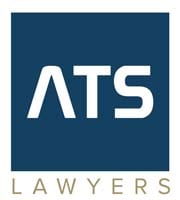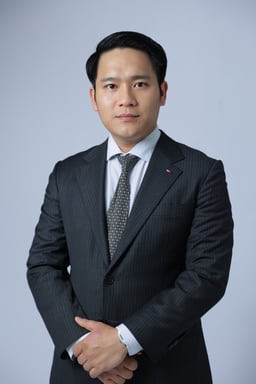VIETNAM SNAPSHOT
Formal name: The Socialist Republic of Vietnam.
Population: 98.59 million (approximately).
Average annual population growth: 1.14%%.
Political capital: Hanoi.
Major cities: Ho Chi Minh City, Hanoi, Hai Phong, Da Nang, Can Tho.
Official language: Vietnamese (for business purposes English, French, Mandarin, Cantonese and Japanese are also spoken).
Currency: Vietnamese Dong (VND). VND22,840.00 = approx. US$1 as at January 2022.
Per capita income: Approximately US$2,786 in 2020.
Foreign investment: The accumulated capital of Vietnam`s foreign direct investment (FDI) is estimated at US$247 billion, equal to 61.1% of the total registered capital (US$404 billion), with South Korea, Japan, Singapore, Taiwan and Hong Kong as the top investors.
Foreign invested projects in 2021 by sector: Manufacturing (59.16%); Production, Electricity, Gas, Steam & Air Conditioning Supply (15.2%); Real Estate (8.35%), Accommodation & Food Service Activities (3.1%); Construction (2.65%); Wholesale, Retail & Repair (2.17%); Transportation & Storage (1.43%); Mining & Quarrying (1.21%); Education & Training (1.1%); ICT (1%).
Top foreign investors for 2021: South Korea, Japan Singapore, Taiwan, Hong Kong (in terms of: (i) total number of projects; (ii) total registered investment capital.
Main exports: Cashew, nuts, pepper, rice, coffee, tea, marine products, textiles, footwear, garments and other light manufactured goods, crude oil.
Main imports: Consumer goods, textiles, oil and gas products and other intermediate goods, capital goods including machinery and equipment.
VIETNAM’S POLITICAL SYSTEM
The core document providing the political and institutional framework for Vietnam is the Constitution passed by the National Assembly in 2013. This is the fifth version of the constitution since 1945 and the third version since reunification in 1975.
The General Secretary of the Communist Party, the President of Vietnam and the Prime Minister are regarded as being the three most important members of the Vietnamese hierarchy.
The Government consists of the Prime Minister, the Deputy Prime Ministers, the Cabinet Ministers and the persons of State bodies who have ministerial status. All are appointed by the National Assembly for a period corresponding to the five-year term of the National Assembly.
VIETNAM’S LEGAL FRAMEWORK
Vietnam is a country of civil law tradition and was strongly influenced by French civil law. The legislative function in Vietnam belongs to the National Assembly, which is the highest State authority in Vietnam and the only body vested with constitutional and legislative powers. Most members of the National Assembly and members of the Government are members of the Party.
The information below summarises the hierarchy and types of legislative instruments in Vietnam, as well as the relevant State bodies empowered to issue them.
Hierarchy Issuing body
Laws/Codes National Assembly
Ordinances Standing Committee of National Assembly
Resolutions National Assembly/Standing Committee
Orders President
Decrees Government
Regulations Government/Prime Minister/Ministries
Directives Government/Prime Minister/Ministries
Circulars Ministries
Decisions Prime Minister/Ministries
Notices Ministries/Government Departments
WTO AND FREE TRADE AGREEMENTS
Vietnam’s relations with the rest of the world have undergone a rapid transformation since 1989, with Vietnam adopting an “open door” policy to foreigners and encouraging the development of political and economic ties with all countries, regardless of their past or present political affiliations.
A major milestone was achieved in 2007 with Vietnam’s accession to the World Trade Organization (WTO). Since then, Vietnam has continued to change and ameliorate its legislation in order to meet international standards and expectations, and to progressively open up its markets to foreign investors.
International treaties have also been used by Vietnam as a crucial tool for bolstering its integration into the global economy, and ultimately have a huge impact on any proposed foreign investment. They include some major regional and international free trade agreements, all of which provide for substantial tariff reductions and the removal of investment barriers. The most important free trade agreements, to which Vietnam is a party, include:
- the ASEAN Economic Community (AEC), which was formally established on 31 December 2015;
- the EU-Vietnam Free Trade Agreement (EVFTA), which came into force in Vietnam on 1 August 2020;
- the Comprehensive and Progressive Agreement for Trans-Pacific Partnership (CPTPP), which came into force in Vietnam on 14 January 2019;
- the Regional Comprehensive Economic Partnership (RCEP), which came into force in Vietnam on 1 January 2022;
- the ASEAN – Hong Kong Free Trade Agreement (AHKFTA), which came into force in Vietnam on 11 June 2019; and
- the United Kingdom - Vietnam Free Trade Agreement (UKVFTA), which came into force in Vietnam on 1 May 2021.
CISG (UNITED NATIONS CONVENTION ON CONTRACTS FOR THE INTERNATIONAL SALE OF GOODS)
On 1 January 2017, the United Nations Convention on Contracts for the International Sale of Goods (also known as Vienna Convention or CISG) entered into force in Vietnam. The CISG provides a uniform set of rules governing cross-border sales of movable goods. There are currently 85 CISG’s contracting States (including the United States of America, People’s Republic of China, Japan, South Korea, Australia, most EU countries and, now, Vietnam), and it is calculated that its provisions govern over two-thirds of international trade in goods worldwide. Vietnam’s ratification of the CISG is undoubtedly contributing to further integrate Vietnam into the global trade system.
FORMS OF DOING BUSINESS
OVERVIEW
According to the WTO Commitments, the Law on Enterprises 2020 and the Law on Investment 2020 (which together constitute the legal backbone regulating foreign investment activities in Vietnam), the commercial presence of a foreign investor in Vietnam may be established in accordance with the following forms:
- establishment of an enterprise with foreign owned capital;
- capital contribution or purchase of shares in a domestic enterprise;
- establishment of a representative office or branch of a foreign business entity.
In addition, certain foreign investments can be carried out in the form of a public private partnership (PPP) or in the form of a business cooperation contract (BCC).
Depending on the specific business activities which the foreign investor wishes to engage in, the establishment of an enterprise with foreign owned capital is often the most common market entry strategy in Vietnam. Subject to the commercial strategy of a foreign investor, a newly established company can be either (a) in the form of a joint venture enterprise between the investor and a Vietnamese entity/individual or (b) in the form of an enterprise with 100% foreign capital (100% FOE). Please note however that the establishment of a foreign invested company in certain key sectors is either prohibited or subject to specific restrictions.
ESTABLISHMENT OF AN ENTERPRISE WITH 100% FOREIGN CAPITAL
The establishment and operations of enterprises in Vietnam are regulated by the Law on Enterprises 2020 and related implementing legislation. According to the Law on Enterprises, enterprises (including 100% FOEs) can be established pursuant to one of the following forms:
- a limited liability company with one member (LLC1);
- a limited liability company with two or more members (LLC2); or
- a joint stock company (JSC).
Other forms of enterprise (such as partnership companies, private companies, etc.) are also available, but they are rarely used by foreign investors for a number of reasons, and are therefore not analysed here.
Depending on the specific circumstances, in the case where a foreign investor wishes to establish an enterprise under its sole management control, a LLC1 is often considered the most suitable and straightforward form. There are however several ownership, management, corporate and governance factors to consider when deciding whether to structure a 100% FOE in the form of an LLC1, LLC2 or JSC.
GOVERNMENT APPROVALS
REGULATORY PROCEDURES
There are two separate and distinct regulatory applications which need to be filed for establishing a 100% FOE, namely:
- an application for the issuance of an Investment Registration Certificate (an IRC), which, once issued, will authorise the implementation in Vietnam by the investor of an “investment project with foreign capital” in the form of the establishment and ongoing operation of the 100% FOE (the Investment Project); and
- an application for the issuance of an Enterprise Registration Certificate (an ERC), which, once issued, will evidence the due and proper establishment and existence of the 100% FOE.
- In addition, once duly established, the 100% FOE could then be able to register one or more branches in other locations in Vietnam.
It should be noted that, while the government approvals listed above are required for every 100% FOE to be established in Vietnam, foreign invested companies may have to obtain additional licences or specific permits for operating in certain specific sectors or for undertaking particular business activities (e.g. telecommunications licences, real estate brokerage certificates, etc.). The relevant licensing requirements, and the conditions and procedures for obtaining them, are usually provided for under the applicable laws, ordinances and decrees regulating the specific investment sector.
CONDITIONAL INVESTMENT SECTORS FOR FOREIGN INVESTORS
As part of its WTO Commitments, starting from 2007, Vietnam has removed most (but not all) of the foreign ownership restrictions previously applicable to many industries and service sectors.
As a general rule, while under the WTO Commitments there are no limitations on market access concerning the commercial presence of foreign investors with respect to certain specific services, it means that a foreign investor from a WTO member country is allowed to establish a 100% FOE or to acquire shares in an existing company in Vietnam.
However, certain key sectors (such as telecommunications, transportation, financial services, press and publishing, etc.) are still restricted to foreign investors, and are subject to full or partial foreign ownership caps (therefore requiring foreign investors to form a joint venture with local companies and to maintain their ownership in a joint venture within the limits permissible under the relevant laws).
In addition, a number of other limitations remain in place with respect to sectors and businesses in which investment is qualified as ‘conditional’. A specific list of 227 industries and trades in which investment is conditional is set out in Appendix 4 to the new Law on Investment 2020. The applicable investment conditions are to be stipulated in applicable laws, ordinances, decrees, and international treaties regulating that particular business sector.
OTHER FORMS OF DOING BUSINESS
Establishing a 100% FOE is not the only form of doing business in Vietnam. Depending on the specific circumstances and on the business activities intended to be carried out, other forms of market entry might be advisable or, in certain cases, required.
INVESTMENT IN A DOMESTIC ENTERPRISE
ACQUISITION OF A VIETNAMESE COMPANY
Foreign investors intending to establish a presence in the Vietnamese market often will do so by acquiring an interest in (or, where permitted under the applicable laws, the entire ownership of) an existing Vietnamese company.
Vietnam law expressly recognises the rights of investors (both domestic and foreign) to purchase from existing:
- shareholders of JSCs, fully paid-up shares; or
- members of LLCs, fully contributed charter capital.
When a foreign investor purchases a percentage, but not the totality, of the ownership of the target company, the jointly owned JSC or LLC is often referred to as a “joint venture” between the foreign investor and the Vietnamese partner.
It is common for the shareholders of existing and new entities to enter into contractual arrangements between themselves regulating their respective roles, rights and obligations in relation to the company.
These shareholders’ agreements (together with the company charter) play a crucial role in determining the management structure of the target company and in protecting the interests of the foreign investor (especially when the foreign investor is only a minority shareholder).
In addition, once a foreign investor has acquired or otherwise established a domestic company in Vietnam, purchasing the assets of other Vietnamese companies can also be a useful way for increasing its market presence.
DUE DILIGENCE
Conducting an accurate due diligence exercise over the target company is naturally the first step for any foreign investor considering an investment in a domestic enterprise. Despite some systemic challenges, conducting legal due diligence investigations, to a degree of detail similar to what is customary in more developed jurisdictions, is now commonplace.
M&A APPROVAL AND PROCESS
Domestic target companies are often required to obtain the issuance of an “M&A Approval” from the relevant licensing authority as a condition precedent to an M&A transaction involving a foreign purchaser, subject to the regulatory requirements under the Law on Investment 2020 in certain cases.
The statutory processing time for an M&A approval is 15 business days, but in practice it may often take longer.
In addition, the changes in the corporate structure connected with an M&A transaction may require the amendment of the enterprise registration certificate and/or investment registration certificate held by the target company or its investors (which are normally completed as a condition subsequent to the M&A transaction).
Finally, depending on the industry in which the target company operates and on the particular business activities being carried out, there might be further sector-specific regulatory approvals that must be obtained. A careful case-by-case analysis of the necessary approvals is therefore of paramount importance.
ALTERNATIVE STRUCTURES
An alternative option, to be considered when the relevant target company is already held by an offshore entity, is for the foreign investor to purchase the shares of the offshore entity rather than those of the Vietnamese company. In this case the M&A transaction would be consummated entirely offshore. A careful analysis should be conducted in order to determine which deal structure could be more advantageous for the foreign investor.
REPRESENTATIVE OFFICE
It is possible for foreign investors to set up a representative office in Vietnam as an alternative to incorporating or acquiring a Vietnamese company. However, the scope of activities that can be performed by a representative office (RO) on behalf of the foreign entity that it represents is limited to the following:
- acting as a liaison office;
- conducting market research; and
- promoting business investment opportunities for the foreign entity.
The Commercial Law expressly stipulates that a RO is not allowed to conduct business activities for profit-making purposes. Setting up a RO is therefore most suitable for a foreign entity seeking to simply establish a presence in Vietnam to survey and monitor the Vietnamese market and promote its brand name.
Notwithstanding the above limitations, a RO is able to open a local bank account, purchase office equipment and enter into labour contracts with both Vietnamese and foreign employees. Further, the RO is not subject to corporate income tax since it does not generate any income in Vietnam.
PUBLIC PRIVATE PARTNERSHIP (PPP)
The term ‘public-private partnerships’ (PPP) describes a form of investment conducted on the basis of a contract between an authorised State body and an investor and/or project company in order to implement, manage and operate an infrastructure project or to provide public services.
On 29 March 2021, the Government of Vietnam officially promulgated Decree No. 35/2021/ND-CP (Decree 35) on PPP, which came into force on the same day, in an attempt to address Vietnam’s contemporary infrastructure challenges and provide an enabling business environment that promotes private sector participation in long-term strategic public infrastructure development.
Decree 35 provides a clear and consistent framework for all kinds of PPP projects in Vietnam. It also expanded the sectors and types of public infrastructure in respect of which PPP concessions may be granted, which now include:
- transportation;
- transmission lines and power generation plants;
- irrigation; clear water supply, water drainage and wastewater treatment; waste treatment ;
- healthcare;
- education – training; and;
- information technology (IT) infrastructure.
Decree 35 also provides a legal framework for “unsolicited projects”, in which foreign investors may propose to the relevant ministries and local authorities the implementation of a project for their consideration.
BUSINESS CO-OPERATION CONTRACT (BCC)
A business cooperation contract (BCC) is a form of investment in which the parties (being foreign investors and/or domestic investors) enter into an agreement for the purpose of cooperating to operate one or more specific business activities. In a BCC investment, the foreign investor shall operate in accordance with the contract and does not set up a new business entity.
CROSS-BORDER SUPPLY OF SERVICES
Under Vietnam’s WTO Commitments, foreign service providers in most sectors (including architectural services, engineering services, computer services, legal services, accounting services, advertising services, etc.) are allowed to supply their services to customers in Vietnam even without establishing a commercial presence. This mode of supplying services is known as “cross-border supply”, because in this case only the service crosses the national frontiers.
Prior to establishing a legal presence in Vietnam, foreign investors should therefore carefully consider whether such establishment is actually required under Vietnamese law with respect to the business activities they intend to carry out, and whether other options (such as cross-border supply) might be preferable from a commercial perspective.
FOREIGN CONTRACTORS
Under Vietnamese law, a foreign-domiciled company supplying goods or services into Vietnam, or deriving income from Vietnam as a result of contracts or agreements with organisations or individuals in Vietnam, is defined as a “foreign contractor”. Compliance with Vietnamese law is mandatory, in connection with all supplies of goods or services within Vietnam.
Withholding tax (known as foreign contractor’s tax) is payable (generally) on services fees at various rates according to the nature of the activities performed (and is generally withheld by the customer and remitted to the State by the customer before payment to the foreign contractor is remitted out of Vietnam) – but, this is subject to double taxation avoidance treaties and other possible exemptions.
Special rules apply for foreign contractors in the construction industry, according to which the foreign contractor (which can be a general contractor, a main contractor, a partnership contractor or a sub-contractor) may conduct construction activities in Vietnam only after being issued with a construction activities licence (also known as a foreign contractor’s licence) by the State administrative agency for construction.
FRANCHISING
Under Article 284 of the Commercial Law, “franchise” is a commercial activity, whereby the franchisor permits and requests the franchisee to sell and purchase goods or supply services on his/her own, on the condition that:
- such sale and purchase of goods and/or supply of services must follow the method of business organisation indicated by the franchisor and be associated with the trademark, trade name, business know-how, business mission statements, business logo and advertising of the franchisor; and
- the franchisor is entitled to control and offer assistance to the franchisee in the conduct of the business.
Franchise activities are governed by the Commercial Law and its implementing legislation, including Decree 35/2006/ND-CP regarding Franchising (Decree 35). The IP Law is relevant as well when the franchisor also transfers to the franchisee the right to use certain industrial property during the franchise period.
Under Article 17 of Decree 35, a foreign service provider intending to enter into a franchising agreement in Vietnam is required to first register with the Ministry of Industry and Trade (MOIT) before undertaking any such franchising activities with a franchisee in Vietnam.
TOP TIPS TO TAKEAWAY “WHAT TO KNOW BEFORE INVESTING”
FINANCIAL ISSUES
TAXATION
Vietnam has numerous kinds of taxes and duties, including (without limitation): (i) corporate income tax (CIT), (ii) personal income tax (PIT), (iii) value-added tax (VAT), (iv) foreign contractor withholding tax (FCT), (v) import-export duties, (vi) special consumption tax, (vii) property tax, (viii) environmental protection tax, (ix) tax on use of agricultural land and (x) tax on use of non-agricultural land.
Projects located in industrial zones (IZ), export-processing zones (EPZ), economic zones (EZ), or high-tech zones (HTZ) may enjoy preferential tax treatment.
REPATRIATION OF PROFITS
Vietnamese laws allow a foreign invested enterprise to remit abroad the profits gained from its business activities in Vietnam.
The remittance of the profits may be in cash or in kind, and may be made annually or at the termination of the investment project. If it is in cash, it is allowed to be made in a freely convertible currency at the exchange rate at the commercial bank of the investor’s choice. However, there are some restrictions on the remittance of profits out of Vietnam:
- first, the foreign investor has to discharge fully its financial obligations to the State of Vietnam prior to the remittance, i.e. subsequent to the discharge of all taxation or other sums due to the State including social insurance, contributions, penalties or other sums; and
- secondly, the amount of profits shall be determined based on the audited financial statements of the company. Therefore, the company may only remit its profits overseas subsequent to the submission of the audited financial statements and the declaration of finalisation of CIT for the relevant financial year to the tax authorities.
Another important point to note is that a foreign investor is not permitted to remit overseas profits distributed or received from direct investment activities in Vietnam for the year in which such profit arises if the financial statements of the foreign invested enterprise for the year in which the profit arises still includes accumulated losses, after carrying forward losses in accordance with the Law on Corporate Income Tax.
In addition to profits, Vietnamese laws allow the foreign investor to remit abroad the payments received from the provision of technology, services and intellectual property; the principal of, and interest on, foreign loans; invested capital and proceeds from the liquidation of investments; and other sums of money and assets lawfully owned by the investor.
FOREIGN EXCHANGE CONTROLS
As a general principle, all transactions, payments, listings, advertising, quotations, setting prices and recording prices in contracts and agreements and other similar forms within the territory of Vietnam must be carried out in the domestic currency being the Vietnam Dong.
Exceptions to the above rule include, among others, capital contributions for the purpose of foreign investment projects in Vietnam; price quotations in contracts of import and export entrustments, and hotel and tourism services, salary packages and payments to foreign employees; transfers between non-residents.
The law further allows the purchase of foreign currency from licensed credit institutions for certain permitted transactions for specific purposes, such as payments for imports and services abroad, repayment of certain loans and the payment of interest accrued thereon and repatriation of investments from Vietnam.
TRANSFER PRICING RULES
According to current Vietnamese laws, transfer pricing is governed by the regulations relating to business transactions between associated parties (Associated Transactions). If a taxation authority determines that an Associated Transaction was not conducted on an arm’s length basis resulting in the transfer price being less than the fair market price it may determine prices to be used for tax declaration and calculation and impose additional taxes.
Enterprises are responsible for declaring their Associated Transactions at the time of making settlement for CIT. The deadline for making this declaration is also the same time as for CIT finalisation. Under the current regulations, enterprises shall select random transaction(s) to compare with its Associated Transactions for the purposes of determining taxation.
INTELLECTUAL PROPERTY
Protection for IP (including trademarks and inventions) is provided under the Law on IP as well as under various international treaties entered into by Vietnam such as the Paris Convention for the Protection of Industrial Property.
Once they have been registered with the National Office of Intellectual Property (NOIP), trademarks and inventions will be protected in Vietnam. Contracts for the assignment of industrial property rights (including trademarks and inventions) must also be registered with NOIP. Licences of industrial property are not required to be registered, but will only be enforceable against third parties if registered.
Inventions may be protected by way of a patent, granted by the NOIP. The term of patent protection is 20 years from the filing date with no extension upon the expiration of protection. Meanwhile, the term of trademark protection is 10 years from the filing date with the possibility to be extended for further periods of 10 years.
The law provides intellectual property right holders whose rights are infringed with a variety of remedies: civil (preliminary injunctions to seize, collect and preserve evidence of infringement as well as compensation for damages caused by infringement), administrative (including confiscation, warnings or fines), criminal (including imprisonment in case of serious cases) and customs remedies (provisional suspension of customs procedures for imported or exported goods suspected of infringing intellectual property rights).
STATE OWNED ENTERPRISES AND EQUITISATION
Equitisation means the conversion of a State-owned enterprise (SOE) into a joint stock company having more than one owner. It is a form of corporatisation and often leads to what are, known as privatisations in other jurisdictions. The Vietnamese government is planning to intensify its programme of equitisation of SOEs and to accelerate the divestment of State capital from businesses in the next few years, with a view to increasing the efficiency and competitiveness of the Vietnam economy. In order for an equitisation to be implemented, however, the SOE must not fall within the category of enterprises in which it is “necessary for the State to hold 100% of the charter capital”, as determined by the Prime Minister from time to time.
STOCK MARKET
There are two stock exchanges in Vietnam: the Ho Chi Minh City Stock Exchange (HOSE) and the Hanoi Stock Exchange (HSX). Foreigners are allowed to invest in both the HOSE and the HSX, although several restrictions apply in certain sectors with respect to foreign shareholdings.
The State Securities Commission is the government body under the Ministry of Finance with the responsibility to administer and supervise the operation of the stock exchanges, securities trading centres, security depository centres, and other subsidiary institutions, and to issue, extend and withdraw licences and certificates relating to securities activities and the securities market.
COMPETITION
Vietnamese Law on Competition (LOC) applies to every organisation and individual conducting business in Vietnam, including enterprises engaged in production or supply of public utility products or services, enterprises conducting business in State monopoly industries and sectors and overseas enterprises operating in Vietnam. The LOC covers two main aspects: competition restraint practices and unfair competition practices. Competition restraint practices include (i) agreements restraining competition; (ii) abuse of dominant market position/monopoly position; and (iii) economic concentrations.
COURT SYSTEM AND JUDICIAL RECOURSE
COURT SYSTEM
Vietnamese law provides for a court system, which comprises:
- Supreme People’s Court;
- Superior People’s Court;
- Provincial People’s Courts;
- District People’s Courts.
The Vietnamese court system is based on a two-tier system to guarantee that the rulings of a lower court can be appealed to a higher court. The higher court then may either uphold or reverse the ruling from the lower court. Usually cases are initially brought to the district or provincial court level, and may then be appealed to the higher court level.
A dispute may, depending on the type and the value of the dispute, either be heard at the district court or the provincial court at the first instance. The recognition of foreign judgments and foreign arbitral awards falls within the jurisdiction of the provincial court.
ARBITRATION
Arbitration as a method of dispute settlement in the commercial sector is becoming increasingly common in Vietnam. Both domestic and foreign arbitration are recognised in Vietnam. As a general rule, however, a foreign arbitral award is only capable of being enforced in Vietnam following the recognition and issuance of an enforcement order by a Vietnamese Court.
For arbitration to take place there must be a clause in a contract or a separate arbitration agreement in which the parties agree to resolve a certain dispute through arbitration. The arbitration agreement must be in writing and entered into by the parties prior to, or after, the dispute occurs.
RECOGNITION AND ENFORCEMENT OF FOREIGN ARBITRAL AWARDS
Vietnam is a member of the Convention on the Recognition and Enforcement of Foreign Arbitral Awards (the New York Convention), and therefore the recognition and enforcement of foreign arbitral awards in Vietnam shall happen in conformity with the rules of the New York Convention. Accordingly, a foreign arbitral award, which is recognised and enforced by a Vietnamese Court, has the same legal effect as a legally valid decision made by a Vietnamese Court.
Vietnam recently adopted the Civil Procedures Code No. 92/2015/QH13 (Civil Procedures Code), which entered into force on 1 July 2016 and replaced the former Civil Procedures Code 2004. The Civil Procedures Code introduced several positive changes aiming to make the recognition and enforcement of foreign arbitral awards in Vietnam become more effective.
First and foremost, the Civil Procedures Code clarifies that the party opposing the recognition and enforcement of a foreign arbitral award has an obligation to prove the grounds for refusal. This is a key principle, because it means that the burden of proof for obtaining the recognition does not lie on the petitioner. Petitioners only need to submit the originals or certified true copies of the foreign arbitrator’s award and of the relevant arbitration agreements.
Secondly, the Civil Procedures Code provides for additional clarifications with respect to the suspension of examination of the petition. In particular, during the suspension period, the judges are responsible for supervising and speeding up the elimination of all suspension causes and, when the suspension causes no longer exist, the judges shall issue a decision to continue the examination proceeding.
Finally, the decision to recognise or refuse to recognize the arbitral award can now be appealed. The Civil Procedures Code also expanded the authority of the appeal panel, which is now entitled to cancel the decision of the first-instance court and to forward







